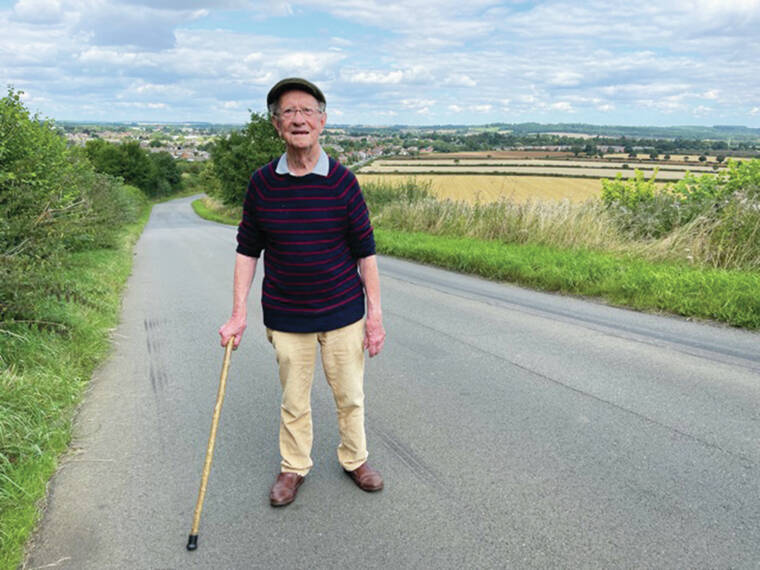You may be thinking that you are too old to start exercising. Or maybe even that you simply can’t do exercises any more, it’s just too hard. But is that really true? I can give you many examples of people who start exercising, even running, after 70 years of age. Of course, I am not suggesting anyone to go and run a marathon. However, everyone can do something to improve their physical health as well as their overall wellbeing and mental health.
Ironically, when we are in our 20s, 30s and 40s we mostly think about how to fit in certain clothes or how we will look in a bikini or swimming trunks, and many of us are thinking we need to lose at least 10 or 15 pounds to be perfect. We are often thinking how something might benefit us immediately or superficially, but not so much in the longer term. We all know that we will get older one day but we really do not pay attention for what we need to do for healthy aging. Even if we may know of something we should be doing that would be beneficial we really do not understand until we hit at least our 50s or 60s, only then do we maybe start to think how we are going to age. I’m sure almost all of us do not want to have to depend on someone else’s help, yet I personally experience that many people in their 50s and 60s who are still not paying attention to the most important and effective aspect, which is exercise. Only when we reach our 70s, 80s and 90s our focus shifts to how we can do our daily housework, how to travel and sit for longer periods without pain, how to get out for a walk, do our own shopping and carry the items, how to do gardening and so on. Unless you have a specific health issue and your doctor has prescribed no exercise then everyone can add some exercise to their life.
Exercise, especially resistance exercises that can help you to gain (or prevent the loss of) muscle mass, can have a huge impact on aging related muscle mass loss, known as sarcopenia. Muscles are life saving, especially when we age. How many people do you know who have had hip and knee replacements, or broken hips, because they lost their muscle mass and their
connective tissues got weaker? When you lose muscle as you age you lose also individual muscle fibers as well. Gaining muscle affects not only how you look, but crucially it affects also how you walk, sit, keep your balance, and do everything in your daily life, even how you sleep. It is really not just for aesthetics.
In addition, of course getting enough nutrients, especially a variety of phytonutrients from whole food sources of vegetables, as well as fruits and adding protein into your diet can be helpful for your muscles. Our body’s protein tissues account for about 30% of our protein turnover, however this declines to 20% or less after the age of 70. So the older we get, the more protein we need.
In part 2 of this series I will give some exercise examples that you can do at home. In the meantime, how about starting with just 10 minutes walking every day, and also try to prioritize how much protein you eat each day as well. If you’re already walking then just add an extra 10 minutes to what you’re currently doing. Walking not only helps circulation (blood flow), it also helps with balancing blood sugar and increases your endurance so your heart will be stronger. Walking also increases functional connections in the brain, which can improve cognitive functions and help prevent conditions such as dementia too. Remember, movement is life so it is never too late to do some movement.
Also, I would love to thank the reader in Kauai who inspired me to write this column. Please, feel free to email me to ask any questions or tell me any subjects that you would like to learn more about.
Resources:
w ScienceDirect. The age-related loss of skeletal muscle mass and function: Measurement and physiology of muscle fibre atrophy and muscle fibre loss in humans. https://www.sciencedirect.com/science/article/pii/S156816371830134X
w Harvard Medical School. Preserve your muscle mass. https://www.health.harvard.edu/staying-healthy/preserve-your-muscle-mass
w National Library of Medicine. Muscle tissue changes with aging. https://www.ncbi.nlm.nih.gov/pmc/articles/PMC2804956/
w Cleveland Clinic. How Can You Avoid Muscle Loss as You Age? https://health.clevelandclinic.org/how-can-you-avoid-muscle-loss-as-you-age/
w National Library of Medicine. Protein and older adults. https://pubmed.ncbi.nlm.nih.gov/15640517
w Kaiser Family Foundation. Why Older Adults Should Eat More Protein (And Not Overdo Protein Shakes). https://khn.org/news/why-older-adults-should-eat-more-protein-and-not-overdo-protein-shakes/
•••
Ayda Ersoy is a nutritionist (Dip.C.N., Dip.S.N.); master trainer (CPT ACE, NCSF, CanfitPro); registered yoga teacher; founder, Health Angel Nutrition, Fitness and Wellness; and founder, SMS (Stability, Mobility Strength) Intuitive Training System.


